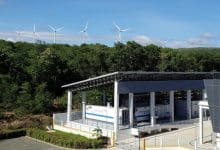Thailand’s new green utility tariff boosts renewable energy use

The unveiling of a Green Utility Tariff (GUT) next month is set to bring about a significant progression in renewable energy use within Thailand, bolstering local businesses and attracting foreign investment. This move has been eagerly awaited by numerous companies considering expansion into Thailand, as they seek not only the necessary infrastructure but also a source of clean energy to support their carbon reduction strategies.
As the specifics of the GUT are clarified, renewable energy suppliers will gain an understanding of the potential benefits to be gained from electricity sales. Simultaneously, users will be able to determine their expenses for accessing clean power. Clear information on the rates is seen as a crucial element for Thailand as it pursues its ambitions to lower carbon dioxide emissions while also stimulating investment and economic development.
The GUT is a tariff applied to the pricing of electricity produced via renewable resources. It is divided into GUT 1 and GUT 2 by officials. GUT 1 pertains to rates for existing renewable power operators and applies to certain types of renewables. GUT 2, on the other hand, relates to rates for new clean power developers, allowing them to utilise various types of renewable energy, as explained by Samerjai Suksumek, Chairman of the Energy Regulatory Commission (ERC).
The ERC calculates the GUT based on three factors: the base tariff, fuel tariff, and other expenses, including those associated with the management of the Renewable Energy Certificate (REC) trade. The base tariff, or base factor, reflects the costs of power plants and distribution systems, while the fuel tariff is mainly determined by the prices of renewable fuels.
The REC is an economic incentive designed to encourage power plant owners to produce electricity from clean fuels. Each REC, which certifies the bearer generates one megawatt-hour (MWh) from renewable energy resources, can be traded as an energy commodity, reported Bangkok Post.
The cost of the GUT should not be a concern, as foreign investors are primarily interested in a stable power supply for their businesses, according to a source at the Energy Ministry. Large companies will accept the rates as long as they are calculated transparently, said the source.
Clean energy
In terms of projects, GUT 1 mainly applies to six hydropower plants operated by the state-run Electricity Generating Authority of Thailand, with power purchase contracts lasting one year. Electricity generation from these facilities can be certified under the REC scheme.
GUT 2, which involves power purchase contracts of up to 10 years, applies to the state’s 5.2-gigawatt renewable scheme. Many energy companies awarded the right to develop renewable power plants under the scheme have already signed contracts with authorities, according to the ERC.
Factories in Thai industrial estates require a total of 10GW of renewable power, based on a recent survey of nearly 5,000 factories. This clean energy demand is fuelled by the need to avoid a non-tariff barrier if they export products to EU countries, which began enforcing the Carbon Border Adjustment Mechanism (CBAM) on October 1 last year.
Furthermore, many foreign companies interested in investing in Thailand are seeking to use clean energy. Microsoft, for instance, has announced its intention to achieve 100% renewable energy usage for potential investment in the country.
Thailand’s decision to adopt the GUT is likely to attract the interest of tech firms, according to Government Spokesman Chai Wacharonke. In addition, the Industry Ministry plans to revise investment incentive packages for companies in the RE100 group to better attract investors to the country. Several hundred companies worldwide have joined RE100, a global renewable energy initiative that commits its members to using 100% renewable energy.
In conclusion, the introduction of the GUT is a significant step towards fulfilling Thailand’s pledge at the 26th UN Climate Change Conference in 2021 to take more serious action on climate change, to achieve carbon neutrality by 2050, and a net-zero target by 2065.
Latest Thailand News
Follow The Thaiger on Google News:


























